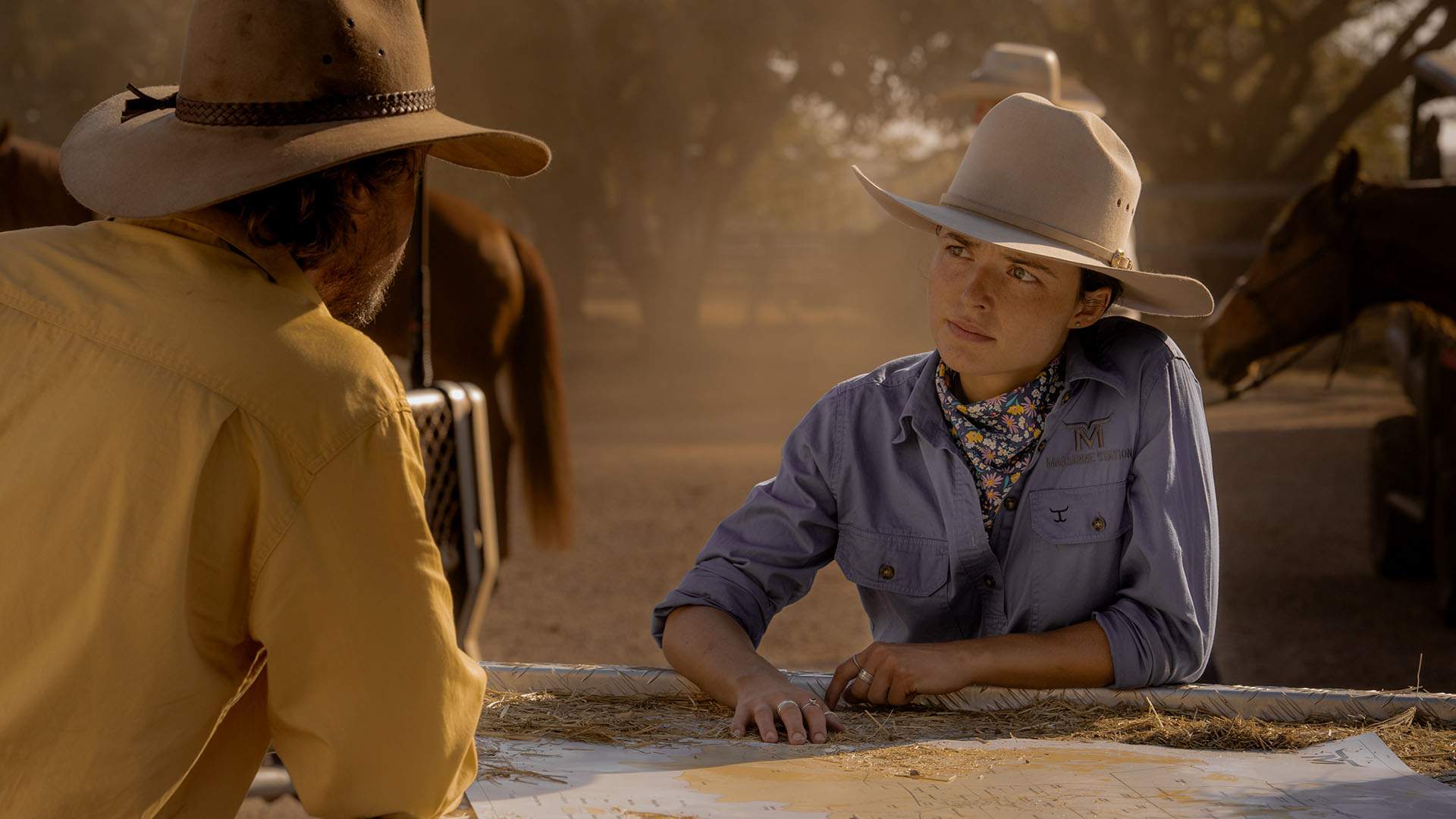Mustering Up 'Succession' Meets 'Yellowstone' in the Outback: Michael Dorman, Philippa Northeast and Sam Corlett Talk 'Territory'
Netflix's new Australian hit follows multigenerational clashes over controlling the world's largest cattle station in the Top End.
There's nothing small about Territory — not the concept, the setting, the cast or the themes. The premise: mixing the heir battles that've thrummed at the heart of Game of Thrones, House of the Dragon and Succession across more than a decade, and to great success, with Yellowstone-esque dramas on a sprawling cattle station in Australia's Northern Territory. The show's fictional Marianne Station is the largest in the world, has been in the Lawson family since its foundation and is the source of a stampede of power struggles, not just among the complicated array of relatives with blood and marital ties to the dynasty, but also across everyone else keen to carve out their own stake.
The Netflix series opens with a death, robbing the Marianne hierarchy of its named successor and leaving Lawson patriarch Colin (Robert Taylor, Kid Snow) with the dilemma of picking who should take the place of his dearly departed second son Daniel (Jake Ryan, My Melbourne). His elder offspring Graham (Michael Dorman, Joe Pickett) is an alcoholic married to the ambitious Emily (Anna Torv, Force of Nature: The Dry 2), who hails from a rival family with a cattle-stealing reputation. Then there's the next generation: Graham and Emily's daughter Susie (Philippa Northeast, Paper Dolls), who has big dreams for taking over, plus the smarts to turn the property's flailing fortunes around; and her half-brother Marshall (Sam Corlett, Vikings: Valhalla), who has long left the Lawson chaos behind and isn't overly keen about being drawn back in.
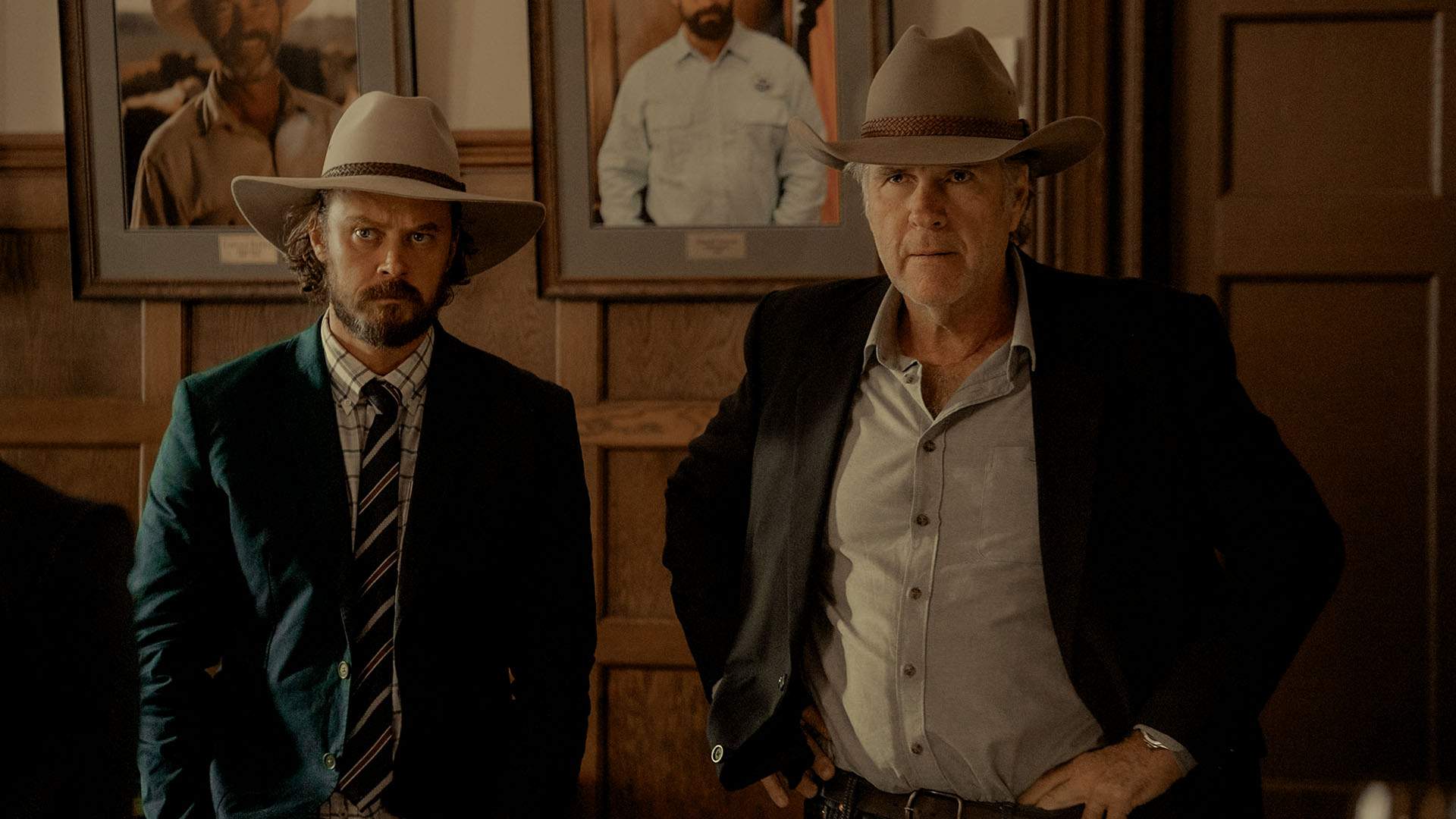
Throw in the fact that Susie is getting friendly with Lachie (Joe Klocek, My Lady Jane), the son of mining magnate Sandra Kirby (Sara Wiseman, High Country), who has her own designs on Marianne — plus another competing cattle baron in Campbell Miller (Jay Ryan, Scrublands), Indigenous station owner Nolan Brannock's (Clarence Ryan, Furiosa: A Mad Max Saga) endeavours to make his own way, and the antics of Marshall's best friends Rich Petrakis (Sam Delich, Last Days of the Space Age) and Sharnie Kennedy (Kylah Day, also Scrublands) — and Territory isn't short on clashes for control. It hasn't been lacking in viewers, either, since it first hit the streaming platform on Thursday, October 24, 2024, becoming Australia's most-watched series on the service and the third globally on the English-language TV list in the week after its launch.
Territory's six-episode first season heartily musters up those feuds and quests for supremacy, that cast of well-known and up-and-coming homegrown names, and stunning backdrops galore — filming on Tipperary Station, where more than 200 cast and crew also lived for the program's first four weeks of shooting, as well as at Kakadu National Park and across South Australia. It also digs just as ardently into the weight of expectations passed down through families and the ongoing fight to be one's own person, alongside exploring the history and colonisation of land with Traditional Owners dating back tens of thousands of years.
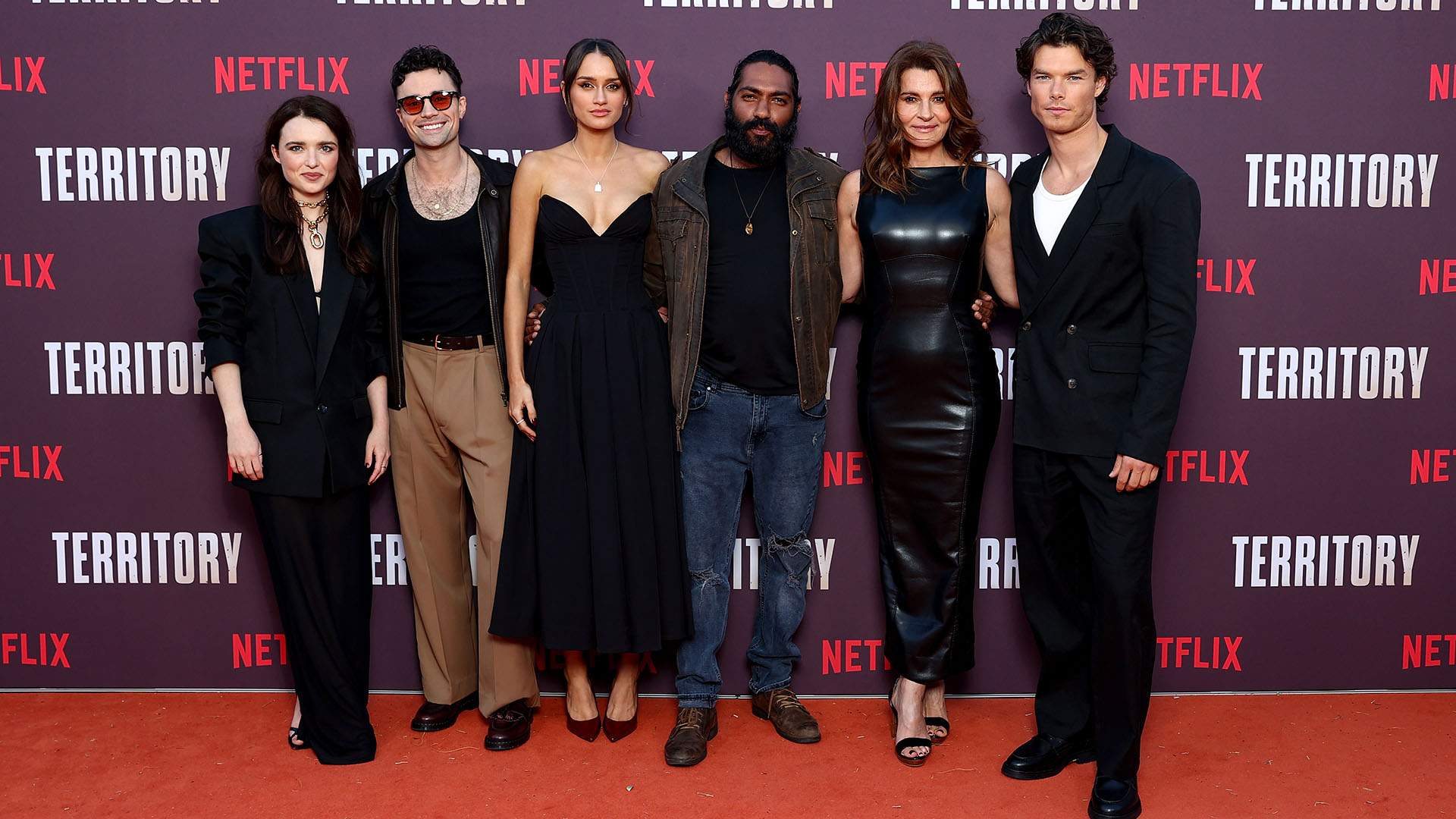
Brendon Thorne/Getty Images for Netflix
While spotting how Territory takes its cues from succession- and western-centric dramas elsewhere, plus the popular trend they've each spawned, isn't hard, this isn't kind of Australian show that graces screens often. It also isn't the type of project that comes across Dorman, Northeast and Corlett's paths frequently. For the New Zealand-born, Queensland-raised Dorman, it's the latest return Down Under on a career that's jumped between The Secret Life of Us as a big break, fellow local roles in everything from Suburban Mayhem and Daybreakers to Wild Boys and Goldstone, and also US alternative-history space-race series For All Mankind. For Northeast, it follows 341 episodes of Home and Away, then Standing Up for Sunny, In Limbo and The Newsreader. And for Corlett, it joins a resume that also boasts The Dry, Chilling Adventures of Sabrina and He Ain't Heavy.
All three revelled in many of the same things about Territory that audiences have been, including the layered character dynamics, the weighty notions beating at the heart of the series and the spectacular backdrop. That said, those watching at home don't get the full IRL Tipperary experience, which Dorman describes as being "pretty much transplanted into isolation", Northeast notes was "like nothing that I'd ever seen before" and Corlett saw as a place where "there was so much memory that you could build" in constructing character, they told Concrete Playground.
We also chatted with Dorman, Northeast and Corlett about their initial reactions to Territory's concept, what they drew upon to play their parts, the research that goes into playing potential heirs to a cattle empire in the NT and more — including diving into Dorman's acting dreams when he was starting out and now, and the joy of returning home as well.

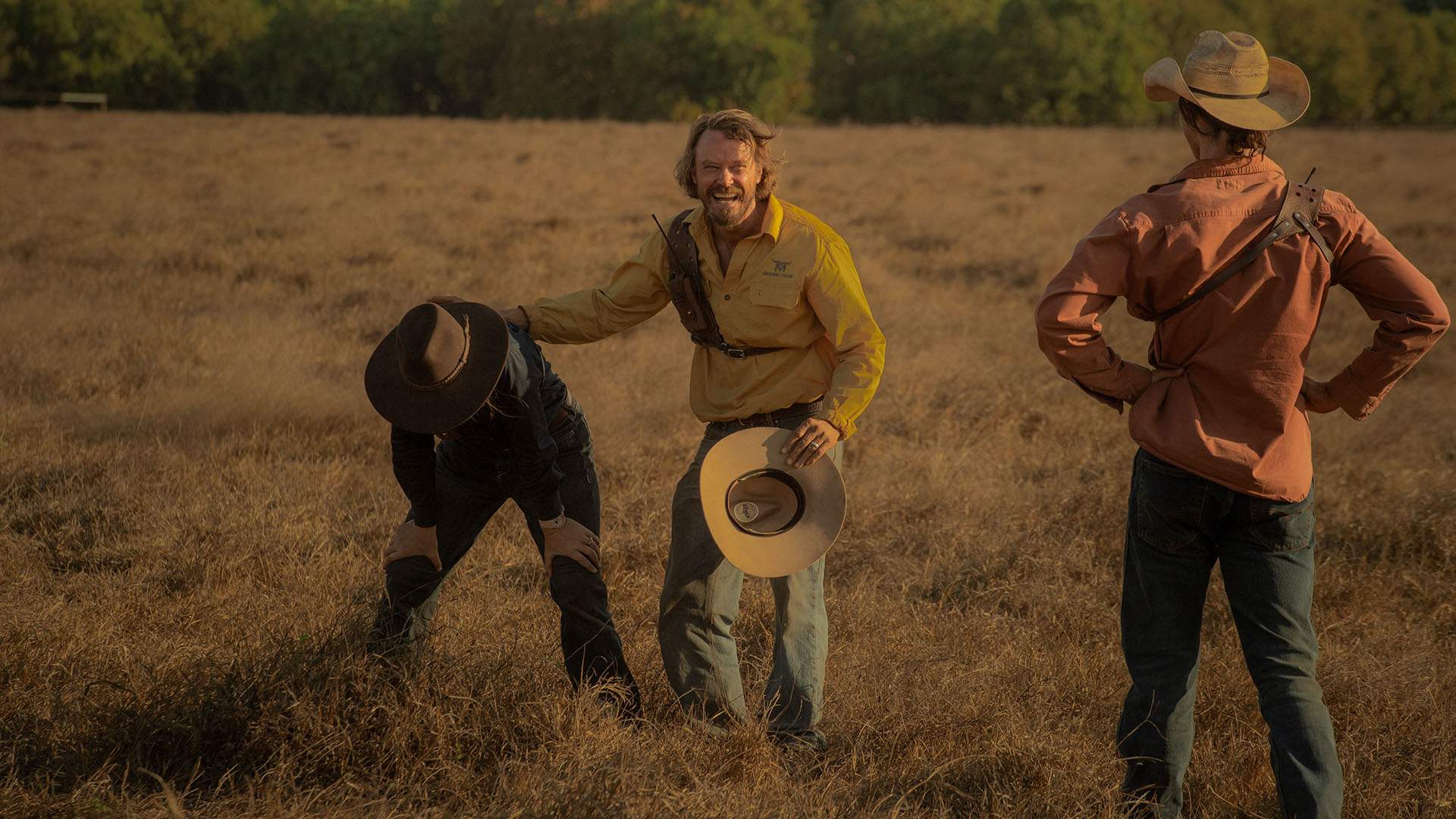
On Dorman, Northeast and Corlett's First Reactions to Territory's Concept — and What Excited Them About Being Involved
Michael: "My first reaction was 'how does this play out?'. When you read the script, okay, what's the vision? How are you going to capture the script?
The excitement came when we first arrived on Tipperary station. So everyone's flying over. We're all coming together. I didn't know everyone. I hadn't spent a lot of time. I think Anna [Torv] was probably the one that I knew the most. I had old friends, Graham Ware, who's the horse master, is a friend of mine and we've worked together a bunch. So I knew that in terms of the horse riding, I was in good hands — and he knows what I'm capable of, what I'm not capable of.
But the excitement really took off when he first landed, all of us arriving, first time taking in the scale of the station. So you walk onto a station that is 4000 square kilometres. And when you think about how big that is there, and there's no one there, and the nearest place to get something, bread, whatever, you name it, is three-and-a-half hours away.
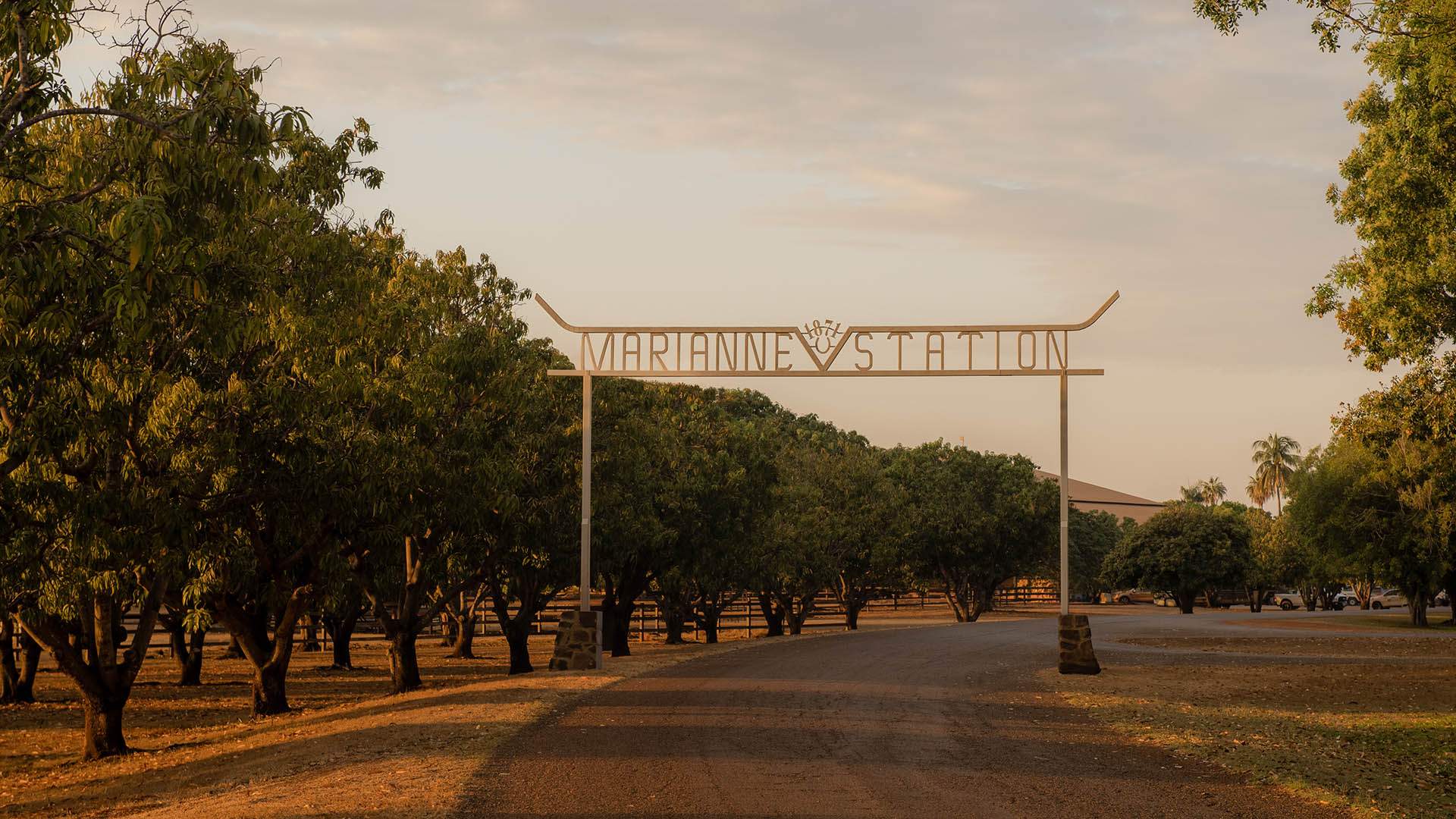
So you're pretty much transplanted into isolation. And for me, I found that very exciting, because that just tapped straight into the story and what these people are experiencing every day, and where they come from. That's the heart of the show.
So for us to get to go there and spend the first part of the shoot there really informed the rest of it, and so that first initial moment in the show was the most exciting for me.
And then from there, we all we all bonded, and the chemistry between all of us just started to make all the colours in the rainbow."
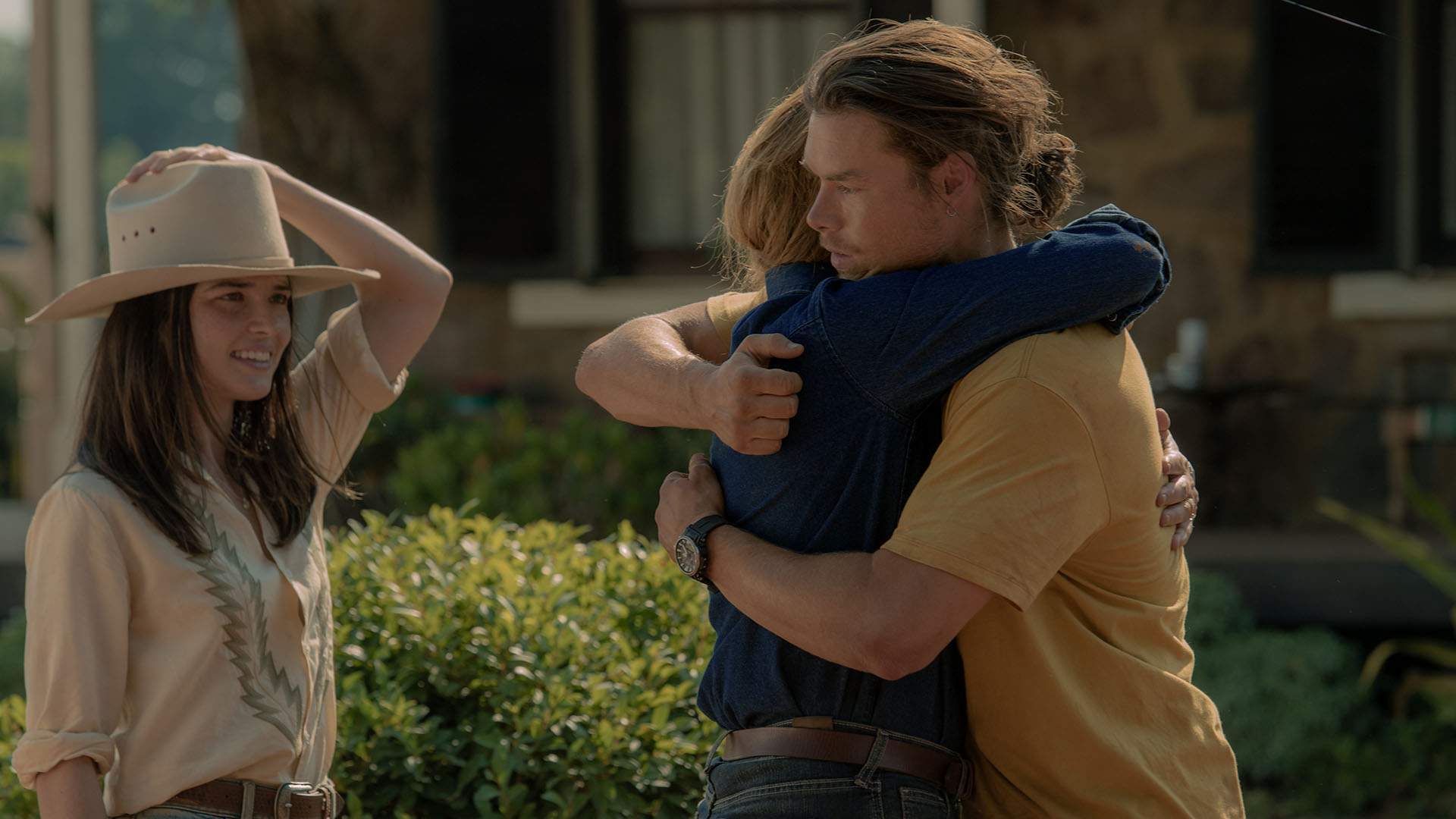
Sam: "When I first read the pilot and I got the deck for the series bible, I was just so invigorated that they were going to do something so unapologetically us — so unapologetically Australian.
And I think the grit that it had, as well as knowing how epic the shots were going to be up north, especially with Simon Duggan, who shot Furiosa and The Great Gatsby, knowing that we were going to be captured by him, it was like 'ooh, this seems like a cool project'."
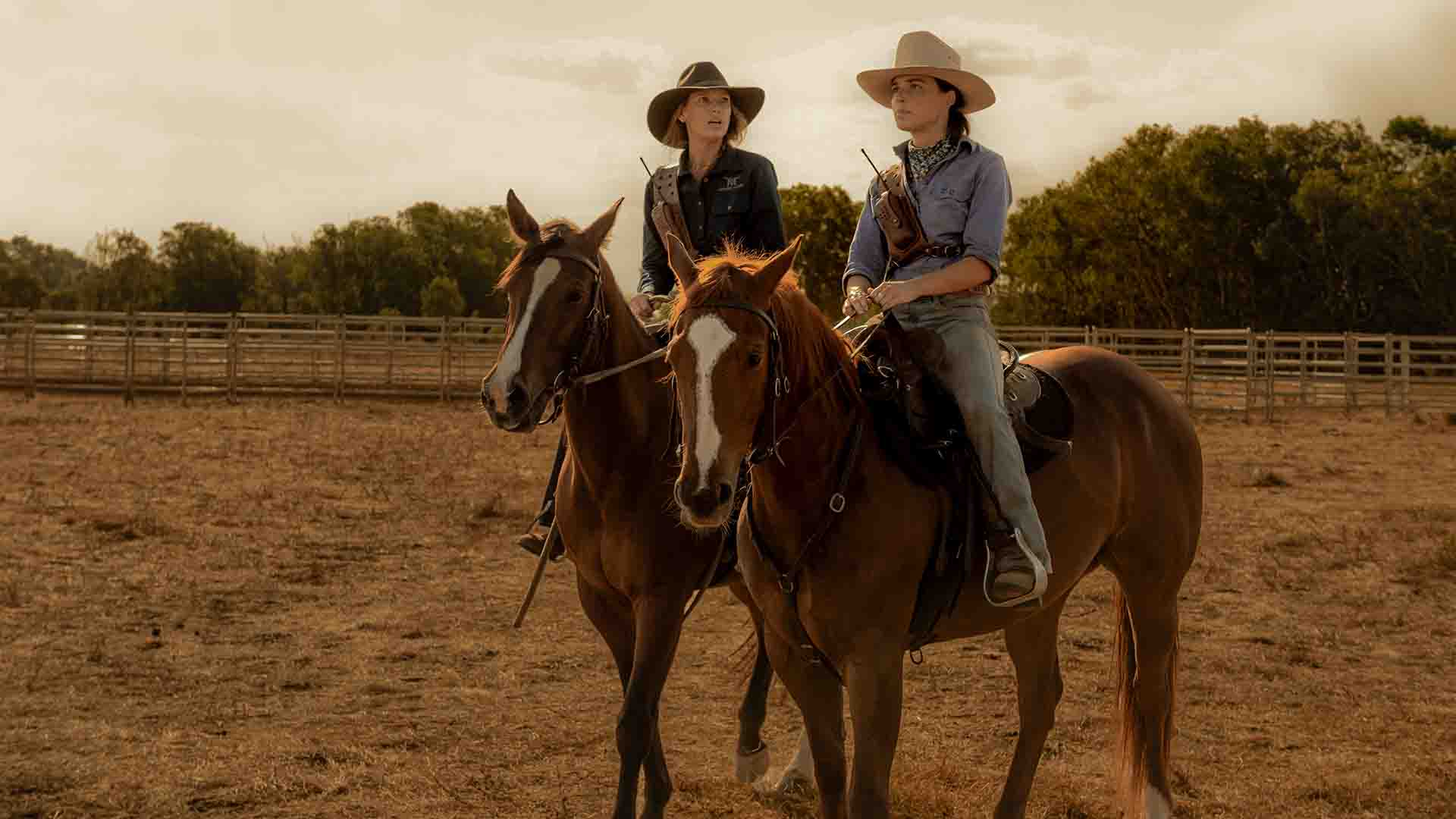
Philippa: "For me, exactly what Sam said. Just the scale, the epicness, the complexity of the storylines, and the multiple storylines crossing in and out of each other — and all the characters that were going to be shown on-screen from the Top End.
What really was striking when I read the script was that for Susie's journey, this was a young female character that wanted to run a cattle station. And I don't see that often when I read scripts. That's not the motive of a lot of the young female characters that I read.
So that just that made me so excited that whoever was going to play this part was going to learn to muster and drive a ute and do butchery and ride horses and shoot guns. And it was just incredibly exciting as a female artist."

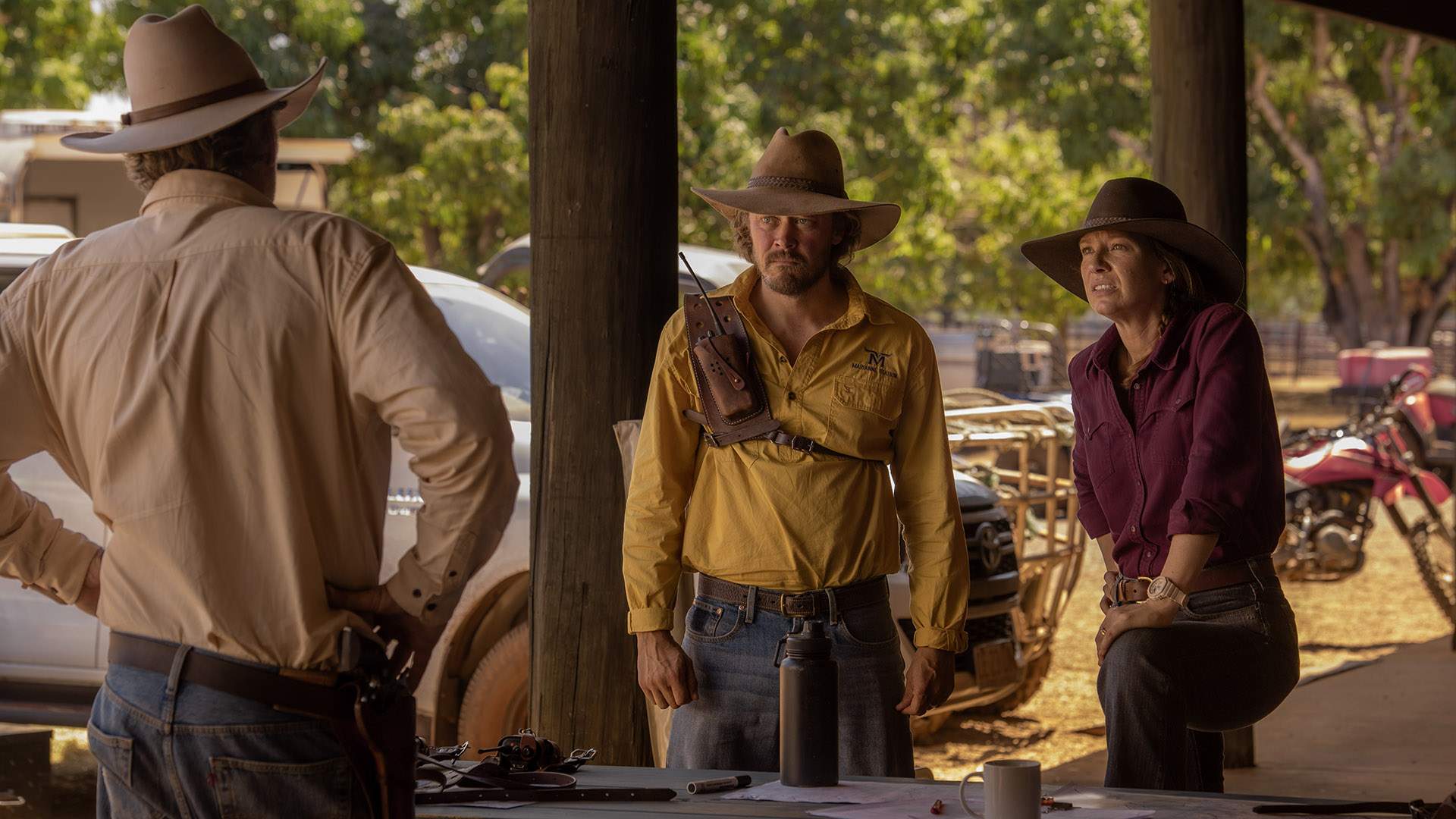
On What Dorman Initially Made of Graham and Saw That He Could Bring to the Role
Michael: "I resonate with stories about fractured humans, and I love redemption. I love it if the character is flawed in so many ways and can find their way to see hope again. And so the thing with Graham is he's down and out, hopeless. Doesn't want to be there, doesn't want to breathe. And I think there's so many people like that in life that just lose the will to breathe. And I love that he had this moment where he's forced to step up, so they say in the show, and believe in himself, which is a really challenging thing for so many people to believe in themselves.
So it's these finer elements for me that excite me in terms of storytelling, because I get an opportunity to speak to maybe one person — if it's one person, you get to speak to them in a way that they would understand because they're in similar circumstance.
And then there's the other side of it, the entertainment factor, who doesn't love to be entertained? But that was the thing about Graham, that character, that I really, really liked."

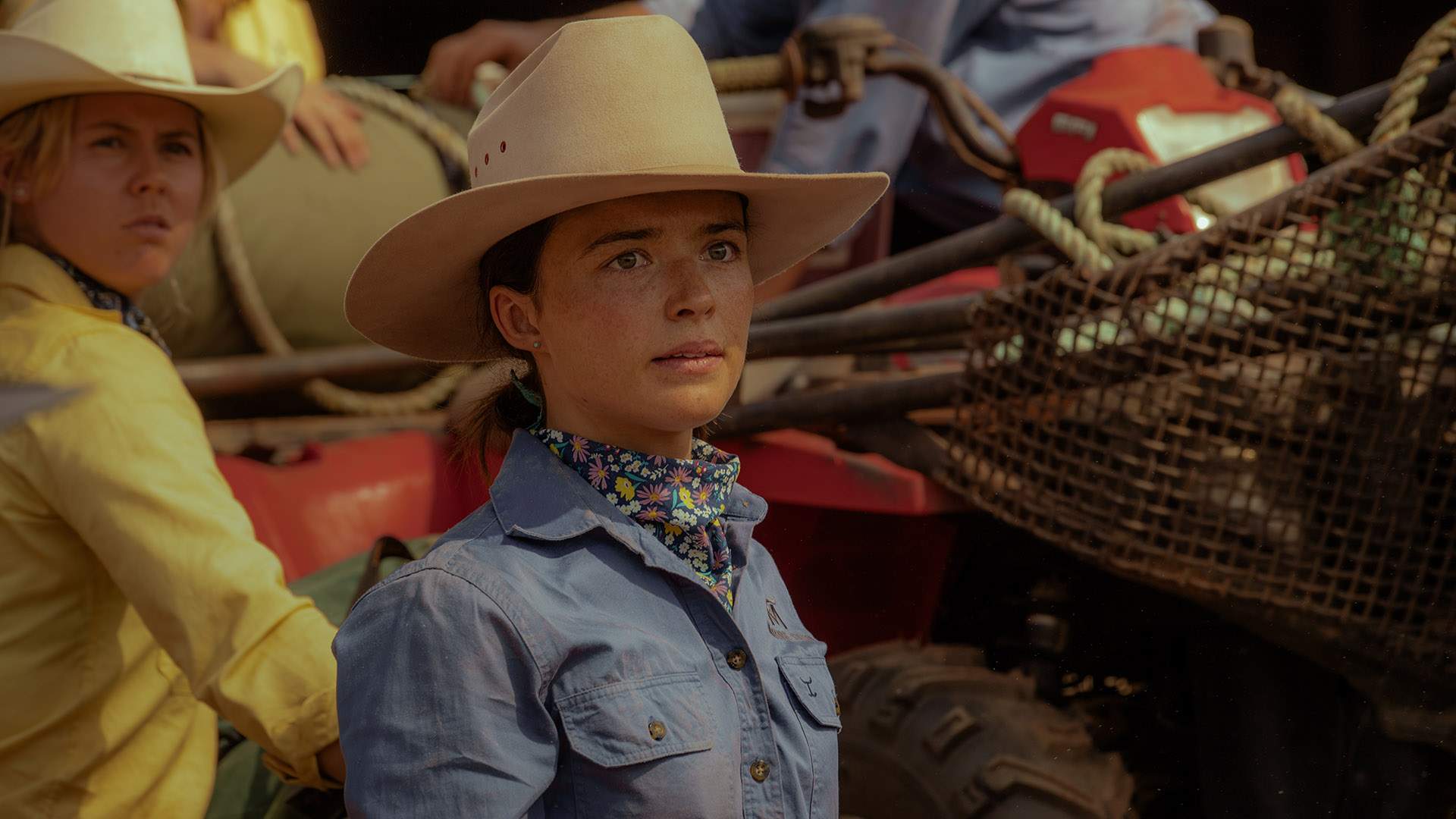
On Northeast's Task Stepping Into the Shoes of a Character with Ambition, Determination and Smarts, But Discovering the Complexities That Await
Philippa: "I think for me, the challenge was to — she's left left ag college and she's coming in from Sydney, and so she's fairly naive when we meet her. And this is a multimillion-dollar business that she wants to run. I don't think she fully understands the gravitas of that, let alone the gender challenges that she's going to come up against.
And I think you see Emily, her mother, beautifully try to impart some of those challenges to her, but also let her learn them and figure them out and make mistakes along the way. And that causes conflict between the two women, but ultimately it's the greatest form of love that they share — the honesty that this is not going be a walk in the park for a woman — and that's definitely explored.
And for me, it was just trying to tell the truth of that, and not shy away from the truth of that through Susie's naiveté."

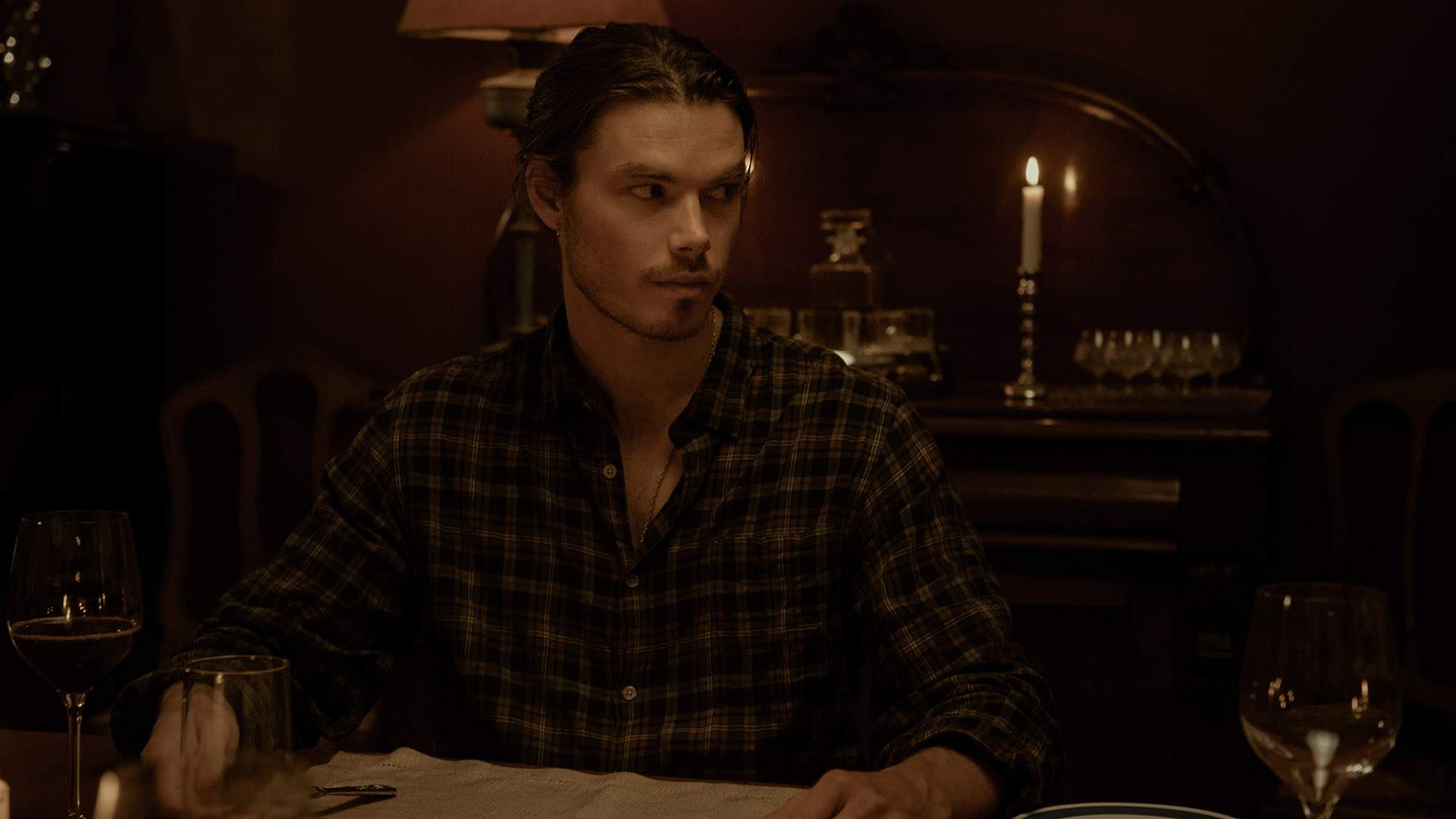
On What Corlett Drew Upon with Marshall Constantly Caught Between His Friends and Family, Father and Grandfather, and Past and Future
Sam: "There was a lot that was pretty accessible. Alcoholism runs in my family, and I never really met my granddad because of alcohol, and didn't have too much to do with my uncle even though he was a beautiful soul. I didn't get to interact with him a whole lot.
I think observing my mum's experience with that, there's such a desire for Marshall, he really wants his dad to be a stand-up guy. And I think Michael plays it so beautifully — like how limp he is, how weak he is. Really, it's quite frustrating for Marshall to watch and to see his father being so belittled by his grandfather. I don't think he particularly sees a role model in either of those characters.
In my own thoughts, I projected that Dan could have been that for Marshall, a sense of 'oh, that's what a man is'. But it wasn't enough for him to stay around, so he ended up leaving the station and seeking his path elsewhere, and ran into Rich and Sharnie, and started, kind of like Henry IV, he finds connection in the kind of outcasts of the society."

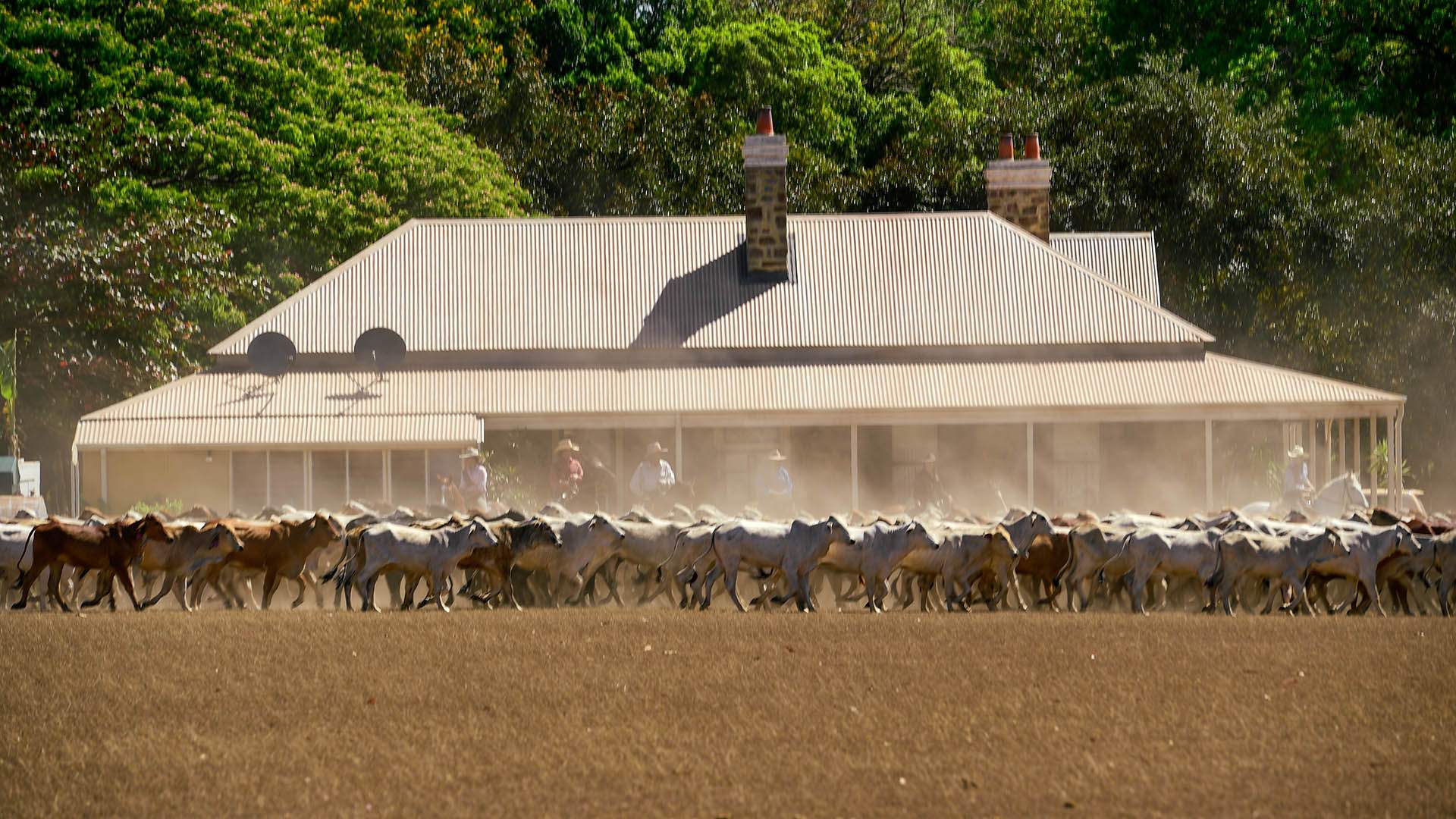
Tony Mott
On the Research That Goes Into Playing Potential Heirs to a Cattle Empire in the Northern Territory
Michael: "It's interesting because, to me, every character is human and there's elements like the horse riding — which is fine, I've worked with Graham [Ware] a bunch, so I'm fine with horse riding — but for me, it was more that I look at it like you can play in any realm or any stage, as long as you know who that human is and understand that emotional cocktail.
The landscape does what the landscape does — that's its own character. My job is to make sure I understand who this human is and why they do the things they do. And then you put them together and it works out just fine, in my experience.
So I guess it's more you study what it is to be human, and then you can go and play."
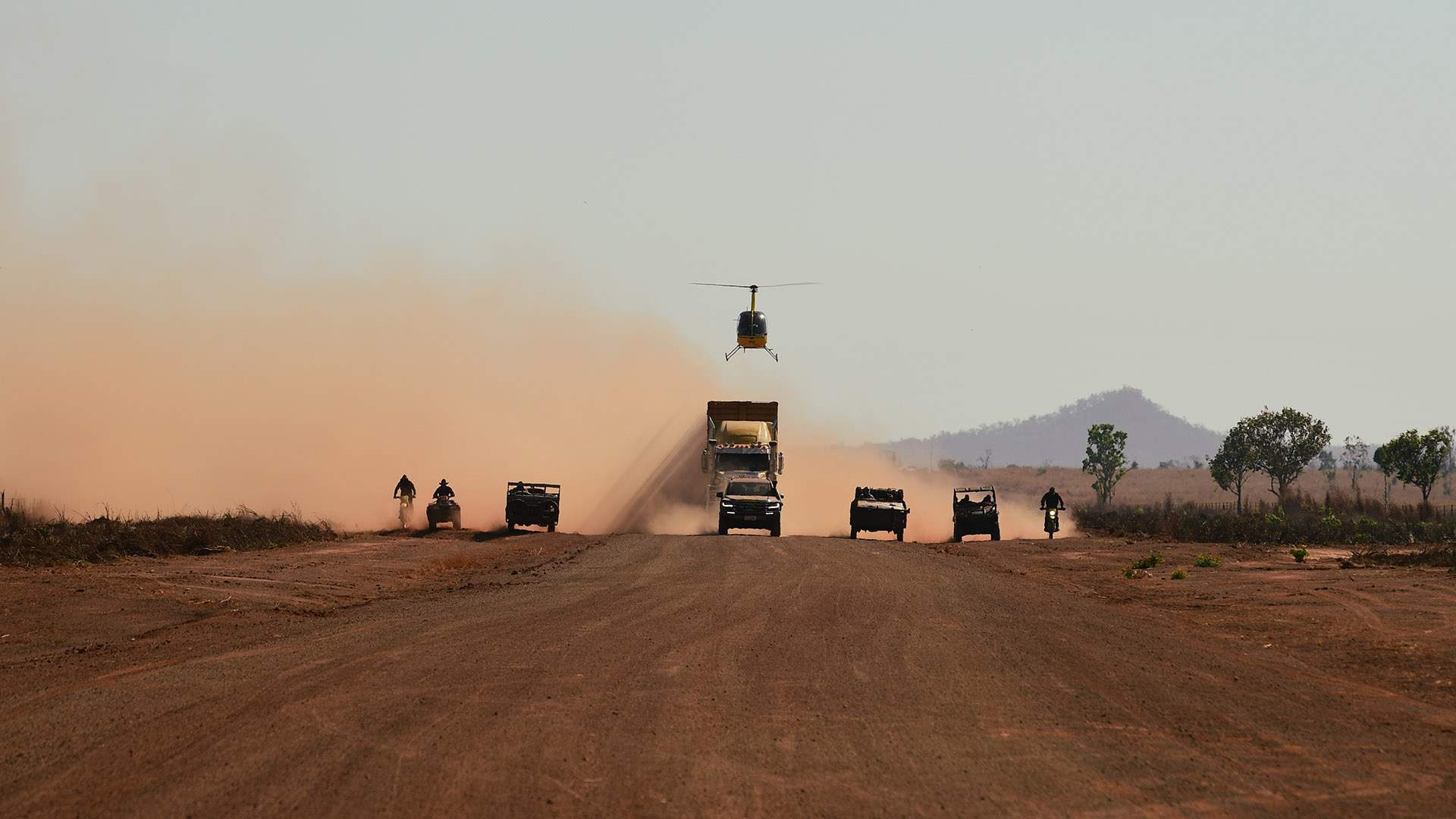
Tony Mott
Philippa: "I think it was a great opportunity. I spend a lot of time in rural NS, as it is, on a property, a cattle property, out there. It's much smaller to the scale of the station at Marianne, but it was great for me to be able to watch the staff interact with each other, watch the day-to-day requirements, go to a couple of bull sales in in the real life, learn how to drive a ute properly — I picked the worst ute and tried to make it go, because I feel like Susie probably would do the same thing.
So for me, I was incredibly fortunate to be able to spend time out there. And then when we got to the station for filming, I just had to, whatever I had learned, I had to put on steroids. The grand scale of the station up there, the way that they muster with helicopters and not just horses, it's like nothing that I'd ever seen before. It's just totally epic. So there's a level of training that you can do, but then to actually be on set was a different story."
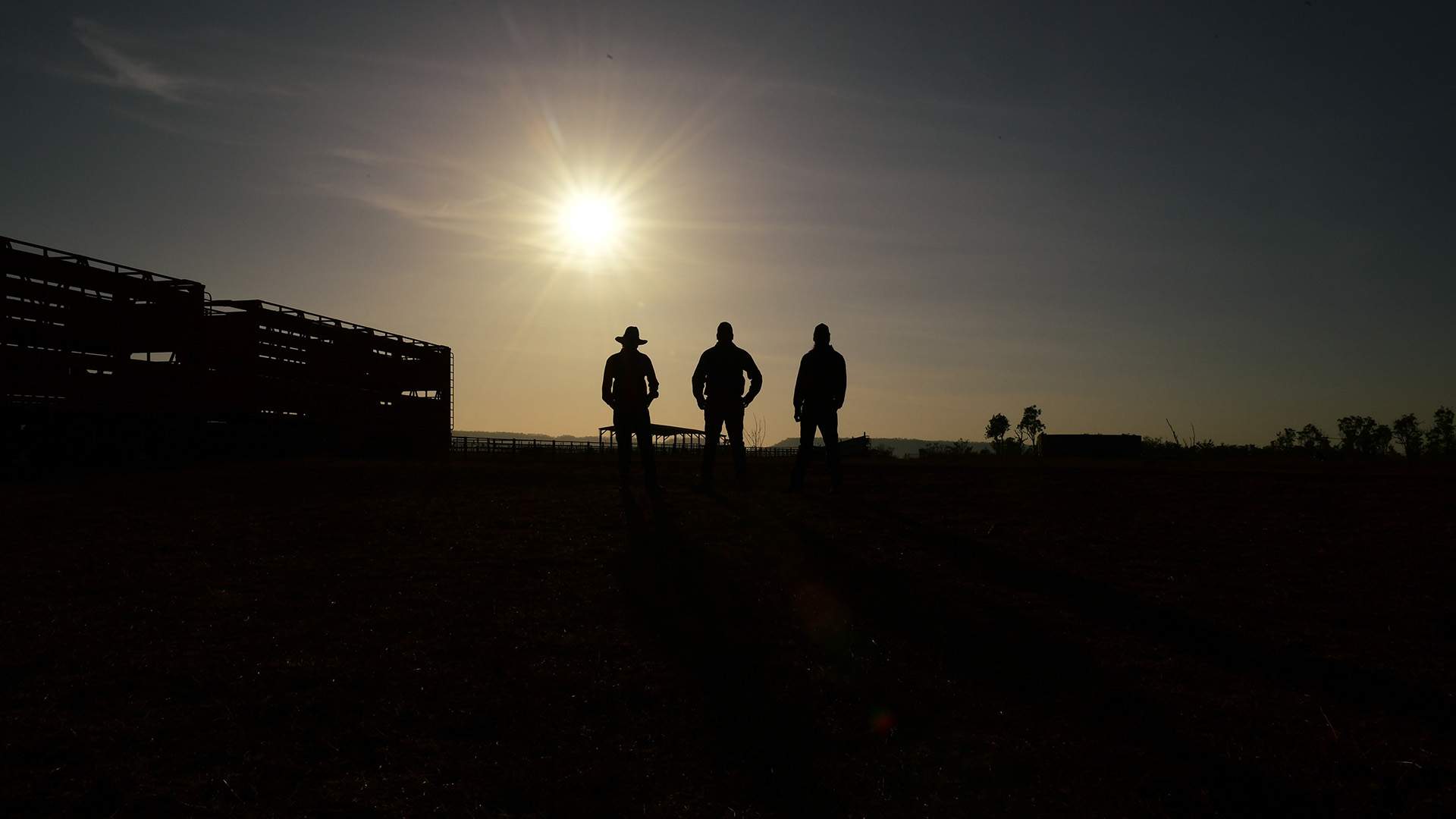
Tony Mott
Sam: "My dad was a jackaroo, and so I had so many stories of when he was younger, purposely rolling cars with his mates and all this stuff. So there's the kind of the cheeky rebellious streak, and then there's also the very practical streak.
And I think always in my head, I called Marshall 'the practical rascal', and so needed to be very pragmatic. And I just tried to get my hands dirty as much as possible and all the things that we were learning, whether it be horses, motorbikes, cars, guns, the whole lot."

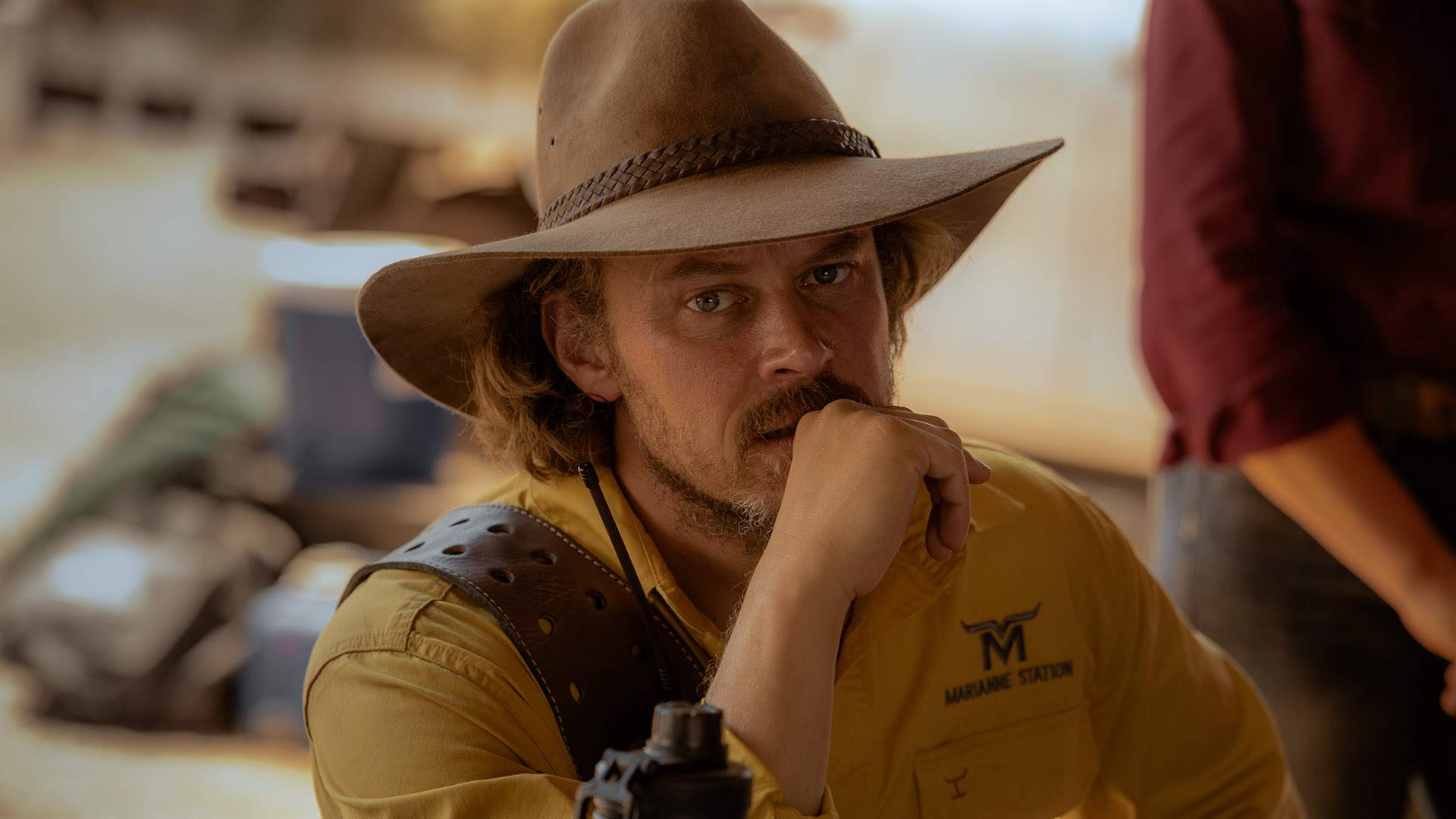
On Digging Into a Storyline About Being Your Own Person and Breaking Free of Expectations
Michael: "I think you have to dive as deep as you can to really understand what that character is going through. And then, once you've done all your prep in terms of diving into the idea of their psyche, then you just let it go. Then you're relying on the people that you're playing with. Then it becomes a like a dance, that's the waltz.
I look at it like it's lightning in a bottle: if you're not capturing it as it's happening, you've missed it and it's never going to be the same again when you run a take. You run a take, you've done all your research diving internally and then you're there.
That's the part of the playing that I love, when you have someone great with you and you're just bouncing off each other. You know when you're onto something good when the crew becomes silent — and there was so many times in this one where I'd be shooting a scene with Robert [Taylor] or Anna where the crew would become silent, and then you know you're making something special."
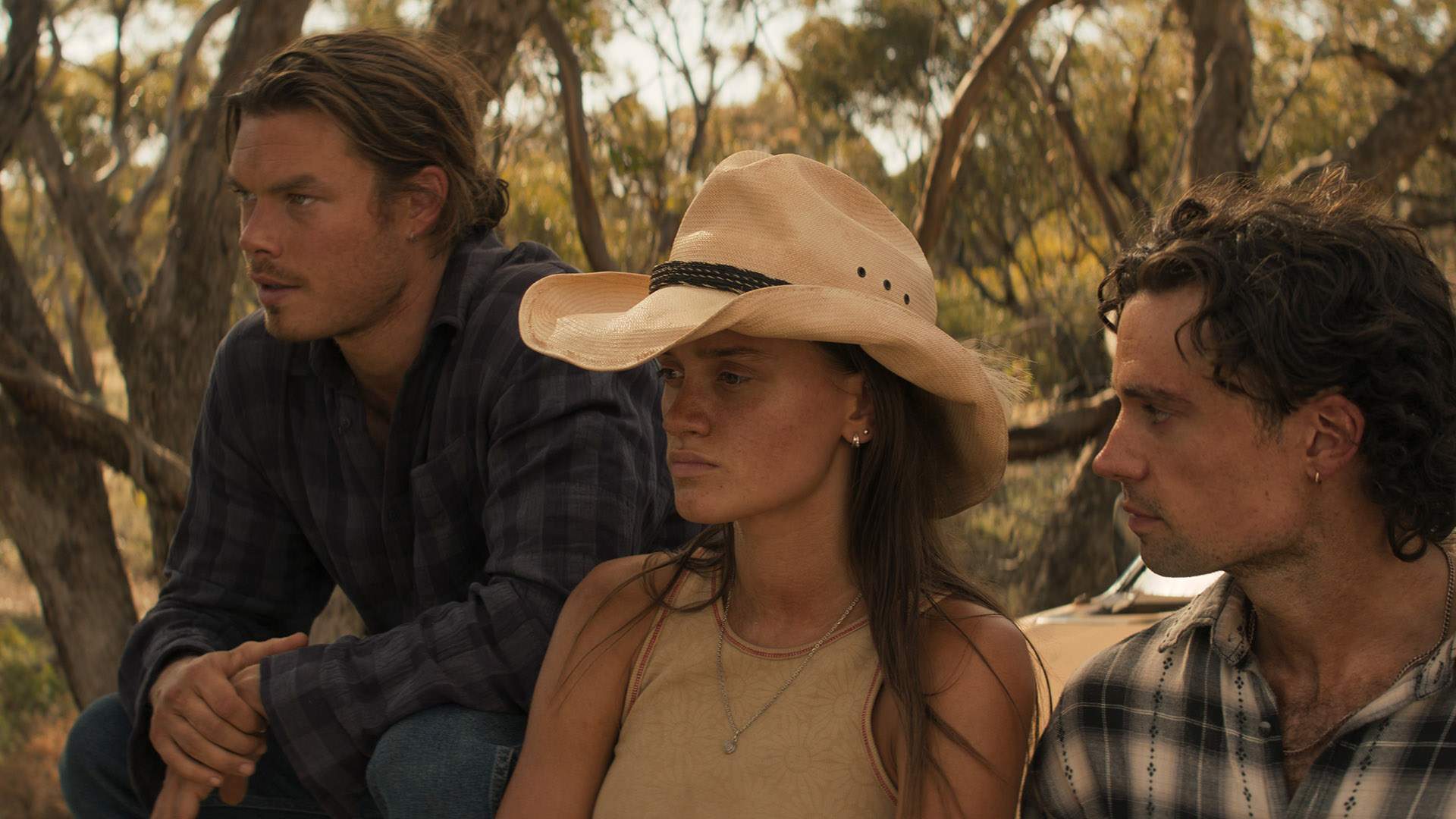
Sam: "Seemingly it's a key theme for every person — to seek one's full self, I think. I find the more personal you get, the more universal it tends to reflect on the world. And so as much as I could find Marshall's experience of life within me, that's kind of the seed. And then it grows from there with your imagination.
And as Pip said, working on the station, we were able to imbue the area with so many memories. Whether it was walking past the house that they built — you could imagine what the barbecues would have been like when we were kids, and what drama might have occurred there. There was so much memory that you could build. But definitely it all starts on a personal level."
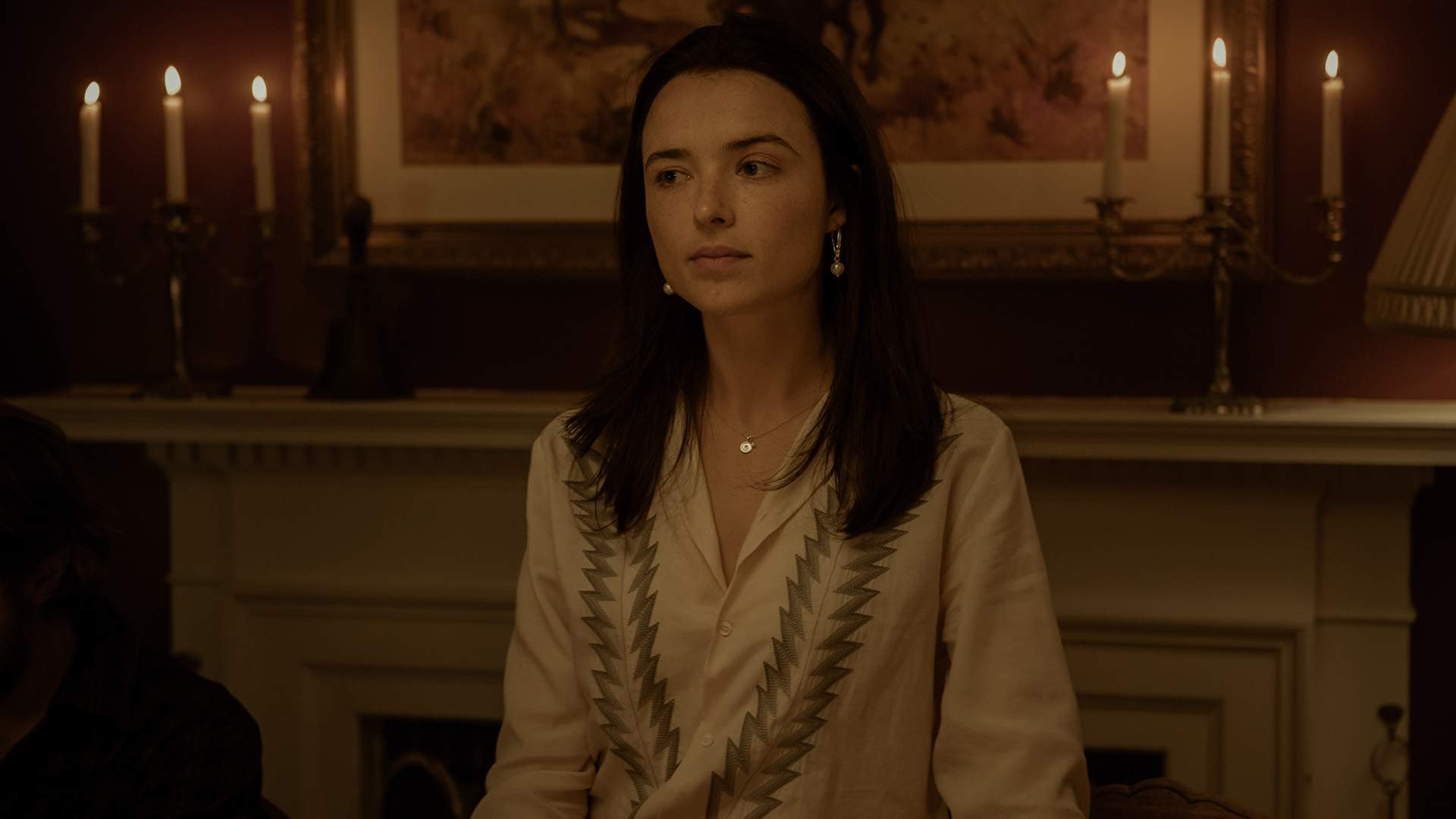
Philippa: "And I think our show is particularly interesting as well because it really explores what do you get handed down from generation to generation, and how to be your own person when you're loaded with this baggage of history — whether that be the challenges of being a male in that space or the challenges of being a female in that space.
And so we take a very detailed look into family baggage and trauma."

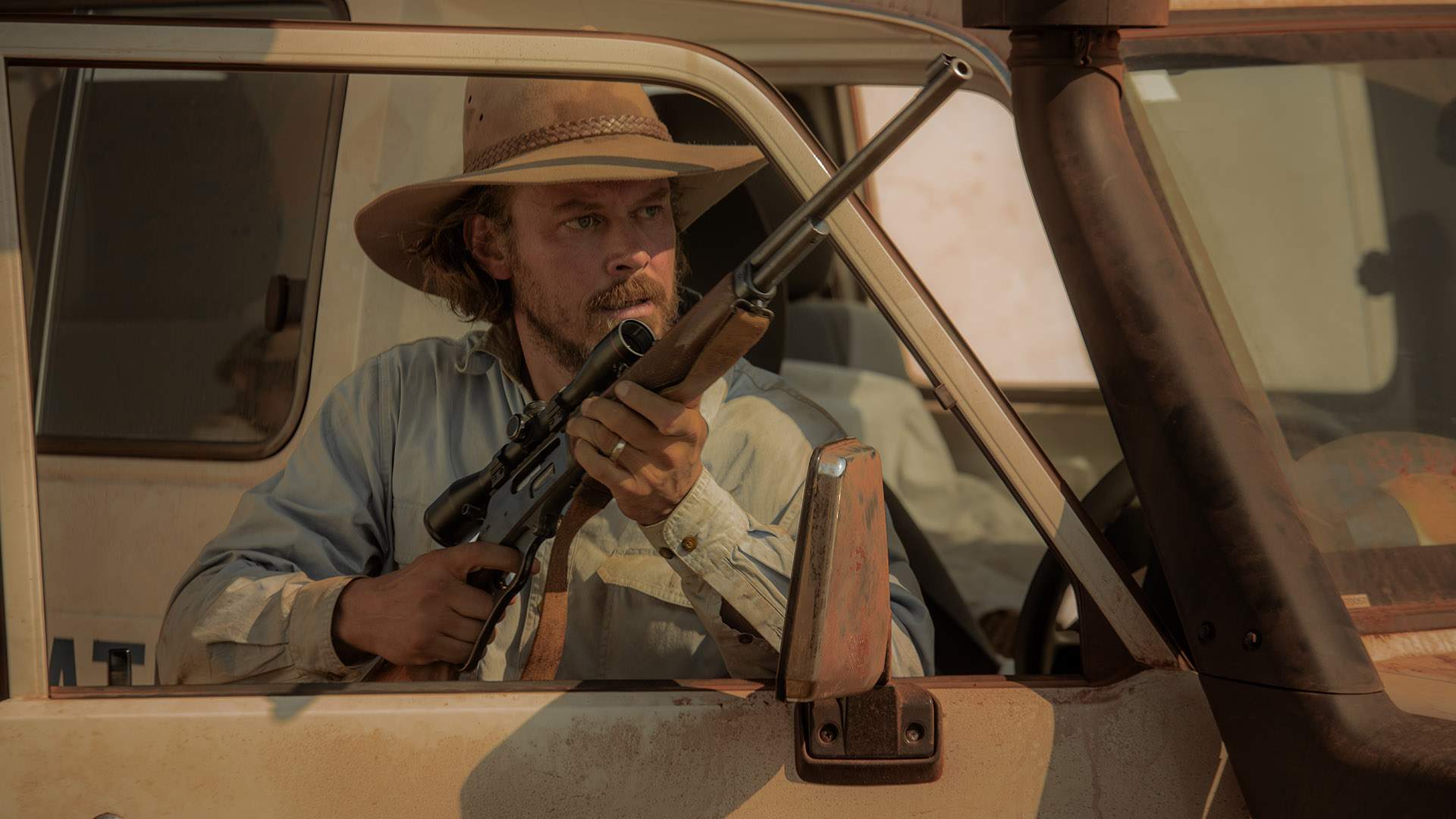
On What Gets Dorman Excited About Returning to Australia for a Role
Michael: "You get to go home. There's nothing like going home. Any of us, when we go home, there's a release, you can feel calm and free. When you're in a space that you don't really understand, it gets slightly tense because you don't understand how everything works. But when you go home, you don't have to think.
So that's what I love about coming home, because I don't have to think about all that stuff. It's just like a duck to water — you understand all of it. And even in terms of the elements, I understand the elements out there. Yeah, it was really, really hot, but I grew up and I spent a long time in Bundaberg in Queensland. It got warm. And I feel like there's a correlation between Bundaberg as a teen and the idea of what a man looks like, and then going on and doing a show like this and the idea of what a man looks like. So I had an understanding there. But going home, there's nothing on going home."

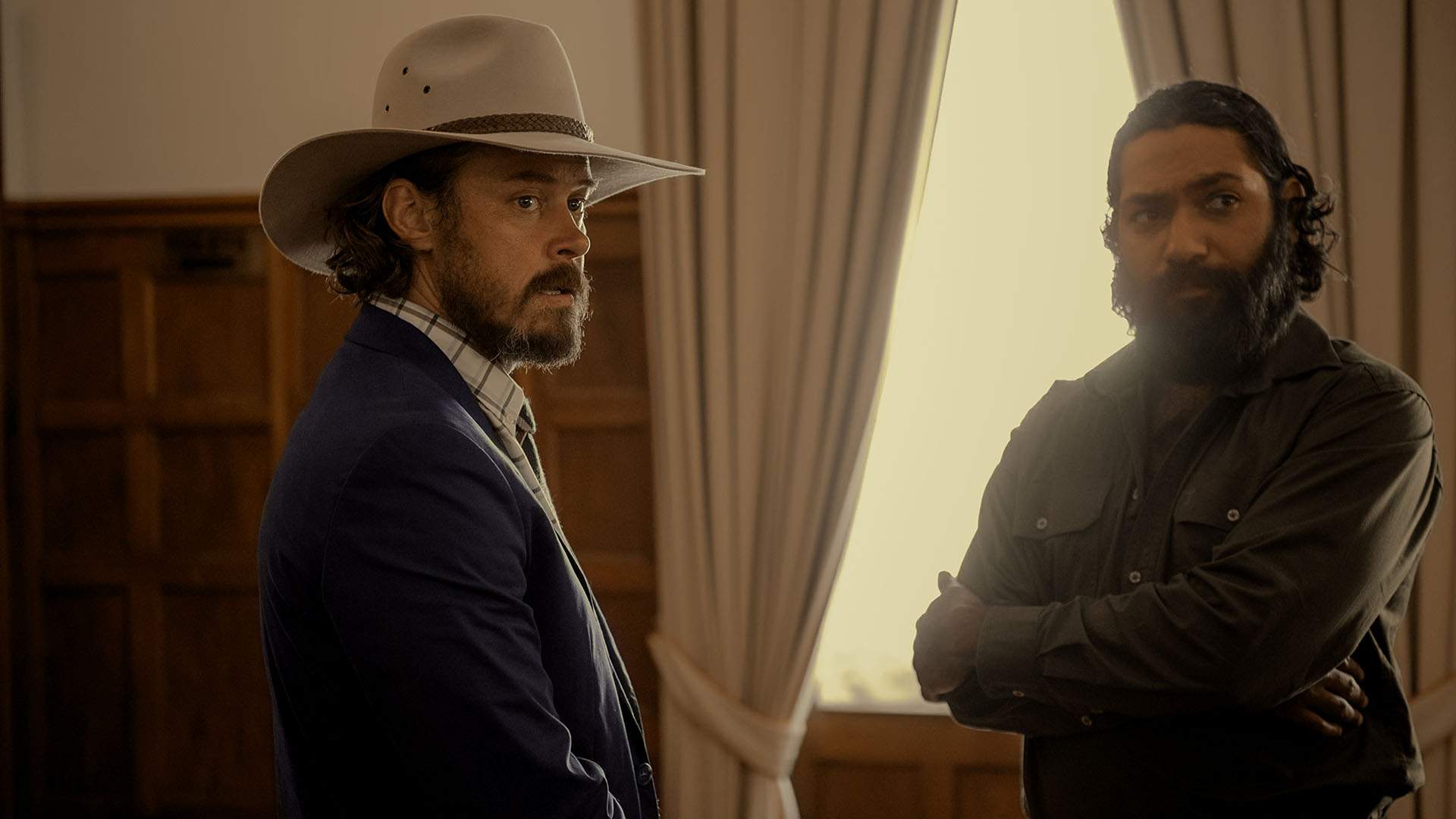
On Dorman's Acting Dream When The Secret Life of Us Was One of His First Major Roles, and Now Two Decades Later
Michael: "It was never about what story to tell, it was more about telling stories and it still is. When I did Secret Life, I was just happy to be there, to be part of the process, to be telling a story. And I'm still the same.
So many people have ideas about what story they want to tell. I'm still in that space where I just love telling stories. If you gave me an opportunity to tell one, I'll jump onboard. So yeah, I haven't really changed in that sense. I just love being in the boots.
When I work with characters, for some reason it always starts with the boots. Whatever boots they're wearing, you put on these boots and you're walking around, and whatever shoes they are — and whenever I put those boots on, and then I walk around with that character playing, and then you take the boots off and let them go.
I guess everyone has their own way of doing things. But these were fun boots to wear."

Territory streams via Netflix.
Images: courtesy of Netflix © 2024.
